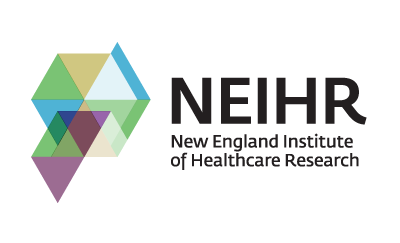Growing, Living and Ageing Well

Telehealth for Children with Complex Needs
The majority of generalist and specialist services are located in major cities, with rural and regional Australians often having to travel hours to seek help. This can be particularly difficult for families with children with complex needs, and can negatively impact the child’s functional trajectory across their lifespan. Rural Telehealth interventions have the potential to improve service access, reduce wait times for children and families and improve the capacity of the local rural workforce to provide ongoing care. Together we are examining the effects of doing so, the factors that enable and the barriers that slow the adaptation of telehealth treatment models for these vulnerable children.

Telehealth Treatment of Child ENT Problems
Like many rural and regional health services, there are significant waitlist times for ENT patients aged 0-16years in the Hunter New England Region. Additionally, many families live far from providers resulting in significant time and cost to travel to consultations.
With the object of reducing these factors and improving patient outcomes, NEIHR members have partnered with local GPs and colleagues from the Hunter New England and Central Coast Primary Health Network and John Hunter Hospital, Newcastle to evaluate the effects and efficiency of using telehealth technologies to treat child ENT problems; and enhance local capacity to meet the needs of our community.

Coordinating Healthcare for Our Youth
The isolation of, and limited clinical services offered in small towns means that rural teens are at risk of poor psychosocial outcomes. To reduce these geographical disparities in healthcare, ‘Teen Clinics’ have been established in the NSW Sapphire Coast and Victoria’s Wilderness Coast. These Clinics offer safe, free, confidential, ‘no wrong door’ support services to teenagers to address their health and wellbeing needs.
NEIHR members are part of team (including UNE and University of Newcastle colleagues) that is examining the facilitators and barriers of establishing rural teen services; the met and unmet needs of teens; and the effects and efficiency of this healthcare model.

Chronic Disease Across the Lifespan
Chronic conditions including diabetes, arthritis and heart disease are among the leading causes of years lived with disability worldwide, and are more common in regional and rural areas. As a result, our communities are characterized by higher rates of preventable hospitalisations, and our residents die earlier than those in major cities.
Many risk factors for these conditions are known. With the object of reducing the impact of chronic diseases in regional and rural Australia, NEIHR members are examining the effects and efficiency of early intervention and management strategies.

Perceptions of Medicinal Cannabis Use
Many cancer patients report using cannabis for medicinal purposes. While lawful for certain indications in Australia, current regulatory hurdles and lack of robust clinical trials mean that many users have to source cannabis via other means. While cancer patients express a willingness to participate in research trials, low recruitment suggests otherwise.
Patient perceptions of the harms and effects of cannabis may reduce the likelihood of joining a clinical trial. As a result, NEIHR members are part of team (including UNE colleagues, University of Newcastle, Hunter Cancer Research Alliance, Armidale Oncology Unit Staff) examining the extent to which HNE cancer patients use cannabis for medicinal purposes; their attitudes and perceptions of the risks and benefits of cannabis for symptom management and the barriers to clinical trial recruitment.

Advance Care Planning
As our population ages, a growing number of Australians are experiencing and dying of chronic disease. The progressive nature of these diseases means that a considerable number of Australians may benefit from integrated, multidisciplinary end-of-life care. Advance Care Planning can improve the quality, continuity and efficiency of end-of-life care, and align care with patient preferences.
NEIHR members are collaborating with clinicians and researchers across HNE and the NSW Mid North Coast Local Health Districts to improve the development, quality, access to, usage and compliance with patients wishes expressed in Advance Care Plans at the end of life.


